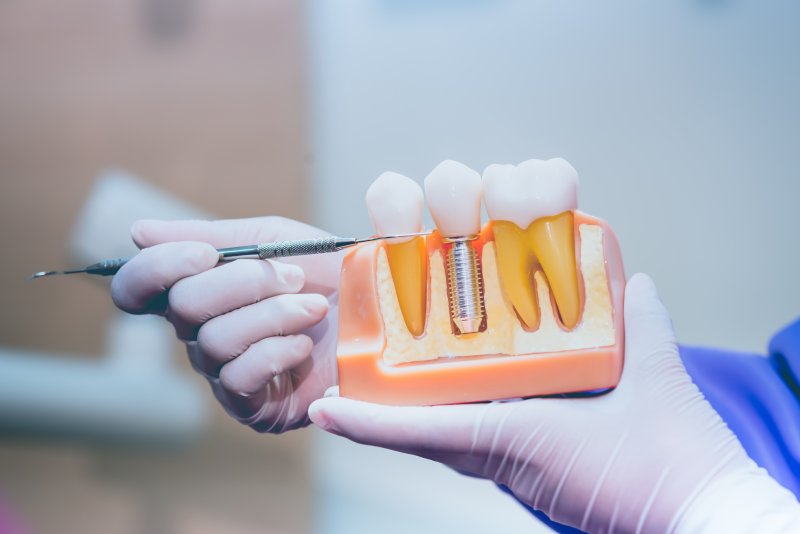
Dental implants are the best tooth replacement option out there. Since they replace the roots of the missing teeth, they allow for a wide range of exciting benefits that you can’t find from other tooth replacement options. This includes being more stable, comfortable, and long-lasting. As you are beginning the dental implant process, it pays to be well informed. Here are some dental implant-related terms that you should become familiar with if you aren’t already.
Abutment
This is the piece that connects your restoration to your dental implant(s). This helps to ensure that your dental crown, bridge, or denture stays perfectly in place. You don’t need to worry about slipping, clicking, or other negative side effects like you would with ill-fitting traditional dentures.
Ceramic
This material is commonly used to make replacement teeth. Ceramic is made from a type of clay that is hardened by heat. It is an ideal option to create artificial teeth thanks to its durability and natural appearance.
Dental Crown
A dental crown is normally placed on a damaged tooth or the adjacent teeth of a missing tooth for a dental bridge. However, when you get a dental implant, a dental crown is attached to the dental implant via the abutment. This makes it perfectly grounded and secure.
Implant Dentures
Dentures have been the tried and tested way of addressing tooth loss for centuries. However, implant dentures have only become popular recently. Instead of being held by the natural shape and suction of your mouth, implant dentures are supported by dental implants. This allows patients with more extensive tooth loss to experience unmatched longevity and stability.
Osseointegration
This term comes from the Greek and Latin words that mean “bone” and “to make whole.” Osseointegration is the fusion process in which the titanium implant becomes one with the jawbone. Osseointegration strengthens the bone and supports the dental implants.
Titanium
In most cases, dental implants are made from titanium. This type of metal offers various advantages. For instance, allergies to titanium are extremely uncommon, so patients are more likely to have a successful outcome. Titanium is also lightweight, strong, and biocompatible. This allows for stronger results that can last for many decades (or even the rest of your life)!
By becoming familiar with these terms and their meanings, you will be able to better understand the process taking place as you complete your smile!
About the Author
Dr. Gus Bal is an experienced dentist who has been working in the field for nearly three decades! He earned his dental doctorate from Boston University Goldman School of Dental Medicine. He completes the entire dental implant placement and restoration process at his practice in Nepean, so you don’t need to worry about working with an outside specialist. To learn more about dental implants or to schedule a consultation, visit his website or call (613) 800-1800.
